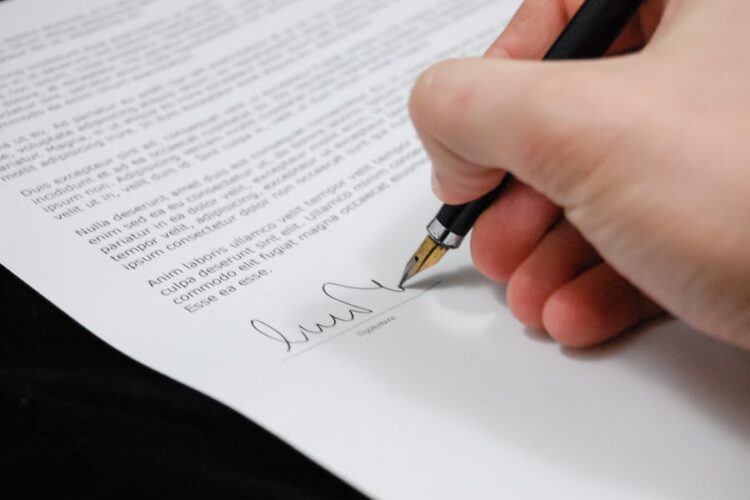Gross negligence describes the legal nature of severe and extreme disregard toward the safety, rights, or property of others. It is far beyond neglect or omission; instead, it suggests intentional indifference to the consequences of one’s actions or a severe breach of duty.
In the case of gross negligence, the party responsible for such may experience penalties, which will be much more severe than in ordinary negligence.
But what are the demands before a judge awards gross negligence penalties? Here are some critical considerations.
Severity of the Negligence
First, the severity of the negligence will be ascertained by the judges. Gross negligence is more than a misstep but a behavior indicative of recklessness and utter disregard for safety and caution. The judges will determine that the actions or inactions were so far removed from what any reasonable person could have possibly done under those circumstances.
For example, if a doctor fails to follow ordinary medical protocols and, as a result, a patient dies, he could be further found guilty of negligence, the term “gross negligence” mainly applies where the risk was apparent and easily preventable.
Duty of Care
Another important consideration is the defendant’s duty of care. This is the legal duty to act reasonably to avoid unnecessary harm to others. Professionals have higher duties of care because of their specialized knowledge and responsibilities.
As such, where these individuals act grossly in breach of their duties, judges become more inclined to mete out more significant penalties. This would also be strengthened if the defendant disregarded such high standards of care and acted otherwise.
Consequences of the Negligent Act
The actual damage caused by negligence is also crucial. The decision to be made here is related to the range of damages like physical injury, financial damages, or emotional distress. A judge will be inclined to impose greater punitive damages in case of serious harm.
For instance, if certain acts of gross negligence result in a fatal accident, the severity of the consequence will influence the judge about whether or not to award penalties.
Intent or Recklessness
Judges also relate whether the negligent party acted with a specific intent or recklessness. In many cases of gross negligence, there is a willful disregard for the risks or consequences. Intent is often easier to prove in a criminal case; a specific type of recklessness suffices in civil cases on the grounds of gross negligence penalties.
The intentional negative act considered in light of the penalty could also arise where the defendant must have known that some measures were necessary to overcome a possible risk.
Recurring Conduct
The court will likely impose harsher penalties for repeated forms of negligent conduct and a finding of civil liability for such negligence by the defendant. In gross negligence cases, if it occurs repeatedly rather than just once, the weight for sentencing on the defendant bulks up.
The courts always give the prior record of acts of negligence relevant to any profession or organization consideration. A pattern of behavior shows a lack of corrective action, making harsher penalties more justifiable to prevent future harm.
Comparative Negligence
In some cases, judges also examine if the injured party is responsible for the injury. Comparative negligence lets courts give some degree of ownership shared by the plaintiff and defendant.
For example, if the injured party acted recklessly or ignored warnings, this will act on the penalties imposed against a defendant. The judges consider these and other examples when determining the overall negligence and how to allot penalties.
Public Interest
Judges consider the broader social consequences of their decisions. They may impose harsher penalties in gross negligence cases involving public safety or widespread harm to deter future similar conduct. Suppose a company fails to adhere to safety rules, resulting in an environmental disaster.
In that case, it may receive substantially larger penalties intended to signal to other companies the importance of their adherence to safety regulations. Finally, judges have to balance their rulings and how they will affect the future conduct of suspect parties.
Mitigating Circumstances
Judges can consider another set of circumstances that mitigate the penalty to be imposed in the case of an event in gross negligence cases.
For example, a judge might be impressed if the defendant seems remorseful about the conduct in question, has taken responsibility for what has occurred, or has made efforts to compensate the victim.
The judge might also consider if other factors beyond the defendant’s control influenced the incident in their final decision.
Endnote
Judges consider several factors when passing penalties for gross negligence. The impact of the negligence, the duty of care owed by the defendant, the harm caused, and the reckless nature of the conduct are essential in determining the outcome.
Judges also consider the case’s broader implications, the history of conduct, and any mitigating circumstances. Penalties for gross negligence not only compensate the injured party but also to try and deter such dangerous acts in the future.










